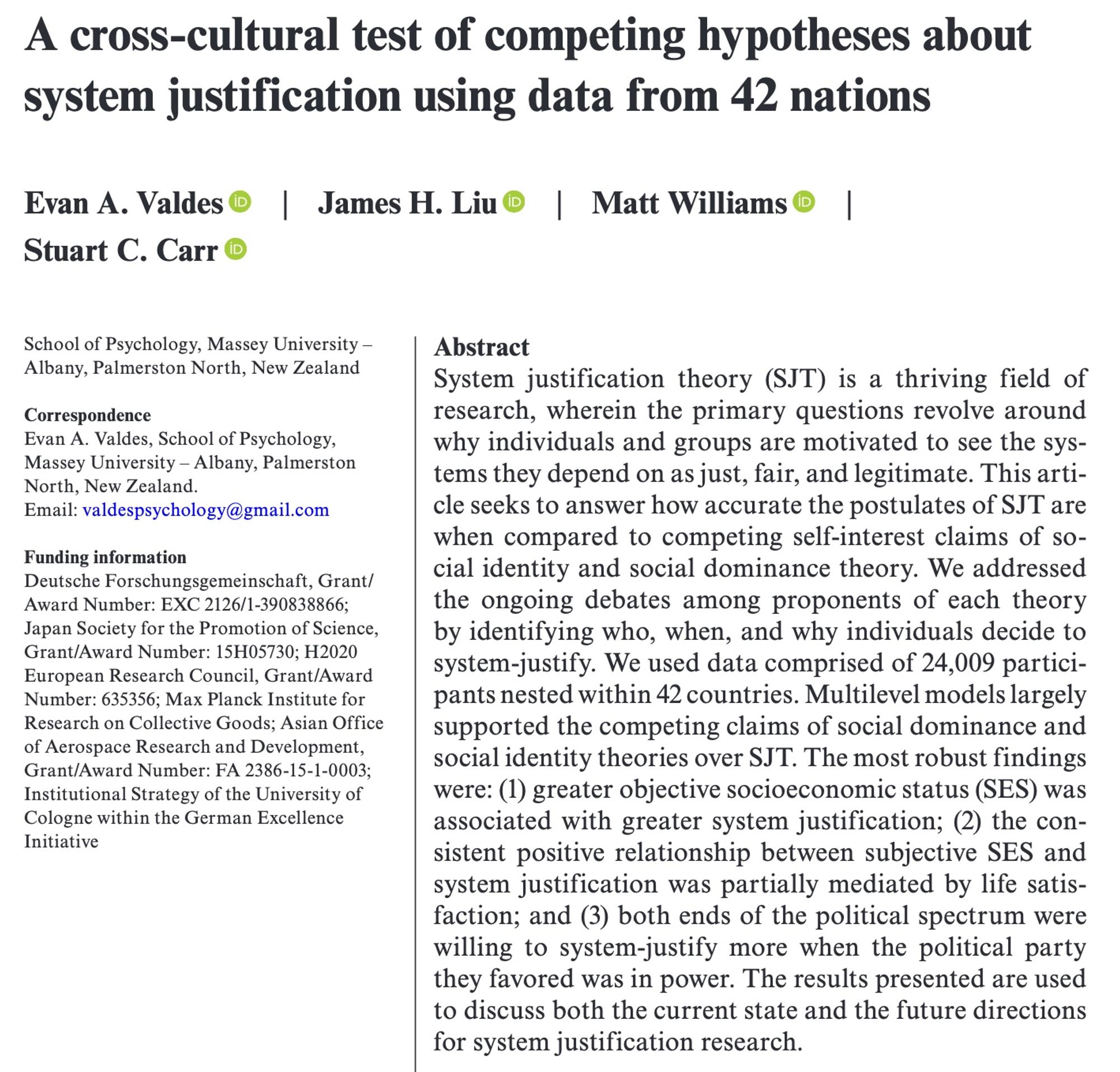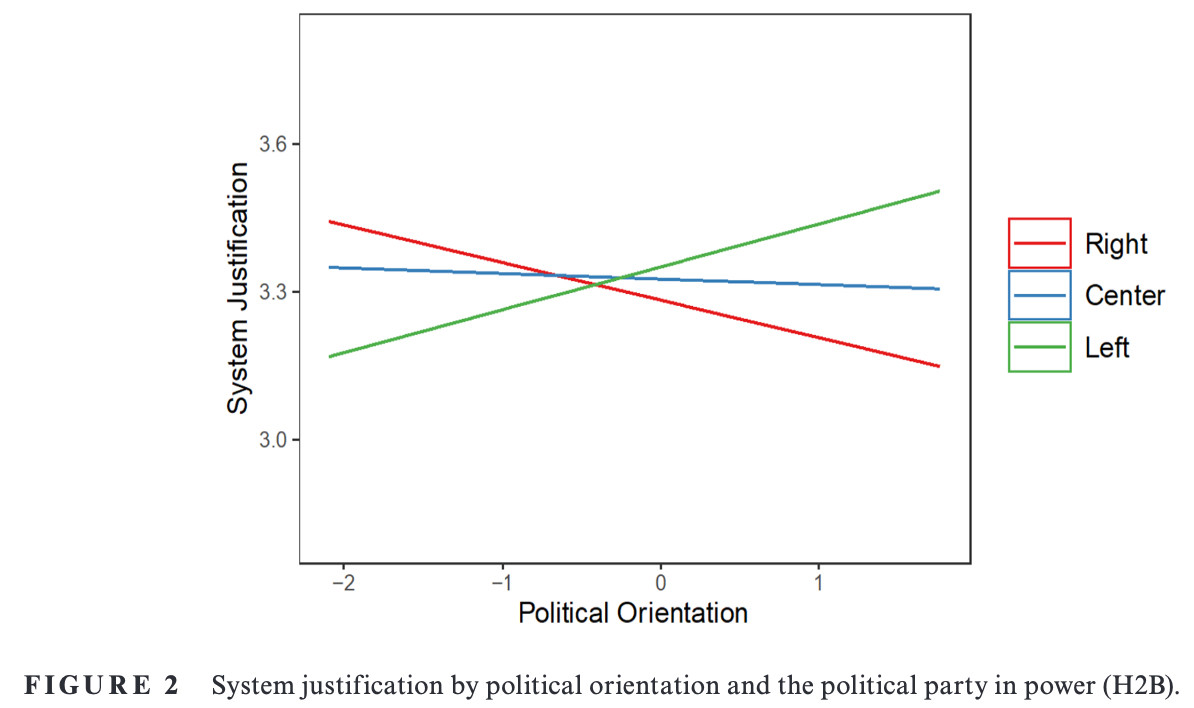
I think it really matters!
Follow up, do you ever explain the labeling in the study or is the a/b designation shorthand for the study similarity?
In the paper, do you ever say the reasoning explicitly, or is the xa/b shorthand for it?
Authors of multi-study papers: why study 1, study 2a, and study 2b VS. study 1, study 2, and study 3? For me the latter is my preference because it doesn't introduce an extra layer of complexity and makes counting the samples straightforward but what is the advantage of studies 2a/b?
CU Boulder is hiring in social psychology! Let me know if you any questions about CU or the position. Please share!
Across 42 countries, objective status is associated with system justification and people system justify more when their party is in power. Authors suggest that SIT and SDI make more accurate predictions than SJT #socpsych#poliskyonlinelibrary.wiley.com/doi/full/10....


I think your intuition is right. I haven't done a computer terminal in person study since 2014, but caveat is i don't rely much on those sorts of paradigms methods wise.
Social psych friends, what’s the ratio of your in lab vs online studies nowadays? I’m debating how many computers (for running participants) to buy for my lab. Even for subject pool, most students seem to prefer online studies…?
This is basically how we got Milton Friedman, how we got Ronald Reagan, and how we got the up-by-your-own-bootstraps, winner-take-all, profits-over-people economy that's leaving so many Americans (and especially women and moms) still struggling today. Let me explain... 🧵 1/

Cool paper!
